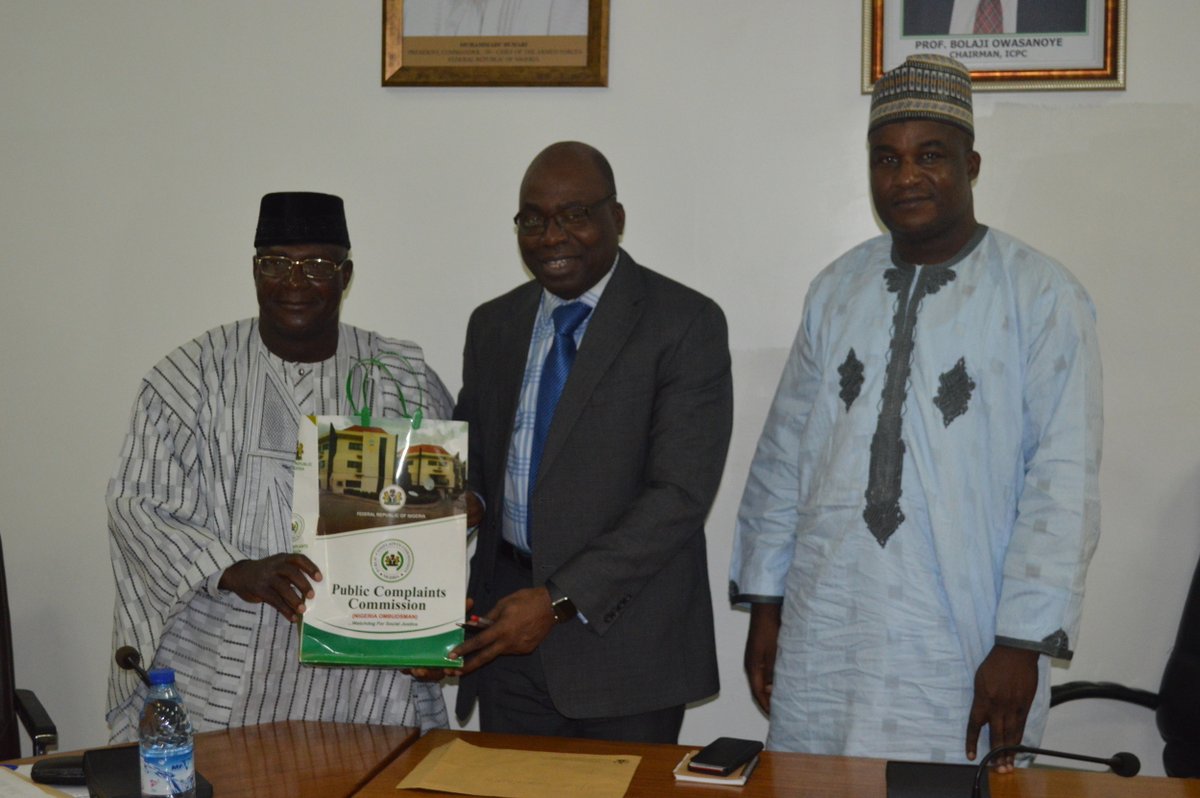The Hon. Chief Commissioner of Public Complaints Commission (PCC) FCT, Hon. Chille Wanger Igbawua, has commended the Independent Corrupt Practices and Other Related Offences Commission (ICPC), for what he described as “doing a wonderful job” of tackling corruption in Nigeria’s public institutions.
He made the commendation while on a courtesy visit to the Chairman of ICPC at its headquarters in Abuja recently. Hon. Igbawua noted that they were not unaware of the fact that ICPC has developed strategies for strengthening public institutions through capacity building of public servants on anti-corruption, especially towards implementing the national anti-corruption strategy as embedded in the Commission’s strategic action plan of 2019-2023, as well as other initiatives.
The Chief Commissioner disclosed that corruption was an impediment to national development and progress and therefore urged all well-meaning Nigerians to support the struggle to end it.
He further explained that they were in the Commission to identify areas of common interest, and also to establish an inter-agency contact desk where issues relating to their common areas of collaboration would be given prompt attention.
He also pointed out that PCC had made meaningful contributions to the fight against corruption in the FCT by partnering with ICPC in many public enlightenment campaigns with impressive results.
The Commissioner therefore called for increased synergy between both agencies to attend to the yearnings of Nigerians and serve them better as well as soliciting for ICPC to help train its staff on relevant areas of their needs.
In his response, the ICPC Chairman, Professor Bolaji Owasanoye, stated that the Commission, in its effort to rid the nation of corrupt practices had always welcomed collaborative efforts from other organisations given the fact that the fight against corruption should be approached collectively.
The Chairman further threw more light on some of the duties of the Commission, saying that ICPC had the power to investigate organisations through systems studies and corruption risk assessment and, as well, direct agencies to take remedial measures to block corruption loopholes.
Professor Owasanoye also expressed the Commission’s willingness to collaborate with PCC in capacity building on integrity and other relevant areas.


